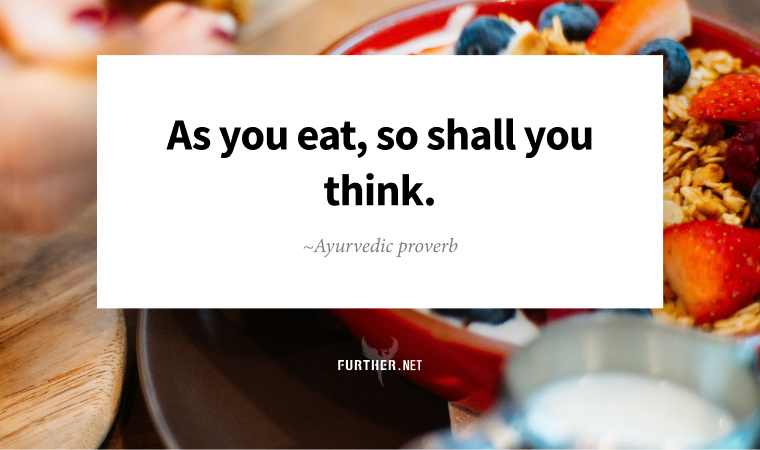
Pura vida!
I’m writing to you from Nosara, Costa Rica … one of a few areas of this beautiful country that my wife and I are considering moving to later this year.
As my son prepares to start college in the fall, our nest will soon be empty. And so begins my “unretirement phase” at age 55 — a time when our lives will change, but ceasing work is not part of the plan.
In fact, my go-forward business plans are quite ambitious. It’s just that I’ll be doing exactly the kind of work I want to do, and I’ll do it from wherever I choose to be.
While heading off to Costa Rica may seem like some sort of ideal retirement scenario, it’s actually much more realistic to do while still working and earning … which I plan to do for decades to come.
The whole idea of retirement at age 65 was devised at a time when few people actually lived beyond 65. Then, for a brief period of time for a select group of people, retirement did become a “golden” period of 10 or 15 years of puttering around.
Just in our lifetimes we’ve seen things shift from a point when 40 was considered old. Now, 65 is not even the end point of the midlife phase for those who prioritize their health.
With increased healthy life expectancy, the idea of working for 40 years to support a 40-year retirement isn’t realistic. And those who can afford it are the most likely not to want and idle life.
The former way of thinking divided life into three stages — learn, earn, and retire. Now, what we used to think of as the “retirement” stage will be that multi-stage extended remix where you’ll continue to learn and earn in all new ways.
You’ll take periodic breaks and sabbaticals to travel and shift gears. But stop working all together? Probably not while you have a say in the matter, and that’s in no way a bad thing — as long as you’re doing what gives your purpose in addition to income.
Ultimately it all boils down to your healthspan. The portion of your life where you don’t “feel your age” should be the primary concern, not the ultimate number of years you live.
Will you be a vibrant individual for whom age is just a number at 65? Someone who continues working, traveling, exercising, and exploring, all in good health?
Or will you experience the new version of “forced retirement” due to the diseases of aging? Ailments that can now often be avoided or significantly delayed with a commitment to exercise, nutrition, and sleep while aided by imminent advances in anti-aging science.
We’ve got a lot more to contribute to the world. Let’s push back the consensus definition of “old” together.
Keep going-
P.S. New to Further? Join us here.
Rock of Ages
Longevity scientists, doctors, and geneticists are starting to coalesce around the idea that it’s possible people may have a “biological age” which can be different from their “chronological age,” the number measured from the day they were born. But is it just another way of saying in “great shape for your age” (which leads to the question, what shape are you supposed to be in at your age?)
What ‘Biological Age’ Actually Means
Cinnamon Roast
Cinnamon is an anti-inflammatory spice and is a delicious way to give coffee a hint of sweetness without adding sugar or alternative sweeteners, which are both linked to causing inflammation.
Want To Lower Inflammation? Dietitians Say You Should Add This Spice to Your Coffee Every Day
Peak Preservation
We now know the basic requirements for long-term health and well-being. The five keys to a long, happy life are: move around a lot, de-stress regularly, have robust social ties, eat well, and try to live with passion, purpose, and regular access to flow.
Rules for Sustaining Peak Performance as We Grow Older
Lateral Thinking
With people living longer, the traditional 40-year career will become a thing of the past. Instead, the 60-year career is much more likely, which means people will need to find multiple satisfying roles so they don’t burn out.
Why Non-Linear Career Paths Are The Future
The Ancient Diet Secret to Improved Mood and Health

By Trudi Roth
You know the expression, “you are what you eat”? After two incredible weeks in India, I have a caveat: you are what you digest.
The first five days of the trip, we stayed at an Ayurvedic wellness retreat, where I was given a customized diet plan and prescribed traditional practices, including yoga, meditation, and bodywork. Within a day, I slept soundly, my skin glowed, and my mood and energy were excellent with minimal jetlag.
For the rest of the trip, we hit the road, enjoying South Indian fare — lots of spicy, fried foods with Kingfisher beer in the evenings to wash it down. Within a few days, my sleeping, energy, and moods became erratic, and my eczema flared up.
The good news is you don’t have to travel halfway around the world to experience the benefits of Ayurveda, a wisdom science and healing system that originated in India 5,000+ years ago. Start by thinking about yourself as part of nature — not separate from it — and you’re on an intuitive path to improved health and well-being.
Follow Your Gut
In Ayurveda, the mind and digestive system are inseparable. The ancient practitioners developed a set of principles rooted in the natural world that focuses on the gut’s environment, individual constitution, and personal taste preferences.
Modern scientific research validates this approach, with evidence growing about how stomach microorganisms influence our neurotransmitters.
In Ayurveda, the fastest way to shift your mood is by changing your diet, improving your gut health, and shifting your microbiome.
To bring your system into balance, Ayurveda identifies your mind-body type (“dosha”) using five natural elements — space, air, fire, water, and earth. While your Ayurvedic roadmap to optimal health is personal, there are universal principles you can practice immediately.
Everyday Ayurveda
The beauty of this ancient approach is it’s all things you’ve heard before, so it’s not as exotic as it may seem.
- Eat mainly plants: Whole, organic plant-based food (i.e., fruit, vegetables, nuts, seeds, grains, legumes), fuel your “prana,” or life force. Also, the prana in food is highest when freshly cooked, so eat leftovers the same day.
- Don’t overeat: Like the Japanese practice of hara hachi bun me, stop eating when you’re 80% full. This is as much about improving your digestion by leaving room for your stomach to break the food down as it is about reducing your caloric intake.
- Have your biggest meal at midday: Ayurveda connects your digestive “fire” to the sun, so eat your heaviest meal during the day. Plus, eating a big dinner close to bedtime can interfere with your sleep.
Ultimately, the nutritional aspects of Ayurveda boil down to being thoughtful about what and when you eat — a deliciously simple way to feel happier, healthier, and more balanced.
3 Ayurvedic Eating Strategies To Support Gut Health & Improve Mood (Mindbodygreen)
further: flashback

Suzanne Vega, DNA – Tom’s Diner
Five fun facts about Tom’s Diner:
- The song was originally written in 1982, and released in 1987 after Vega’s song Luka became a hit. But it wasn’t until the 1990 remix by DNA that Tom’s Diner broke big.
- DNA remixed and released the more popular version of the song completely on their own and without permission. Vega liked it so her label bought the rights instead of suing for copyright infringement, which turned out to be a very smart move.
- The lyrics for Tom’s Diner were written by Vega inside (and about) Tom’s Restaurant in New York City, which you see in Seinfeld exterior shots of the diner Jerry, Elaine, and George frequent.
- The original a cappella version of the song was used by Karlheinz Brandenburg to create the MP3 audio format, because accurately compressing the subtle nuances of Vega’s inflection would mean most any other music would sound good compressed as well.
- Vega confirmed that the lyric about a newspaper story of “an actor who had died while he was drinking” referred to William Holden.
(YouTube)
further: sharing

Further subscribers who share the newsletter with friends can gain three months of access to our exclusive membership community Well + Wealthy with only five referrals. Get your own free weekly dose of health, wealth, travel, and happiness advice here, and find out all the details on our referral program.
Thank you for sharing Further!
